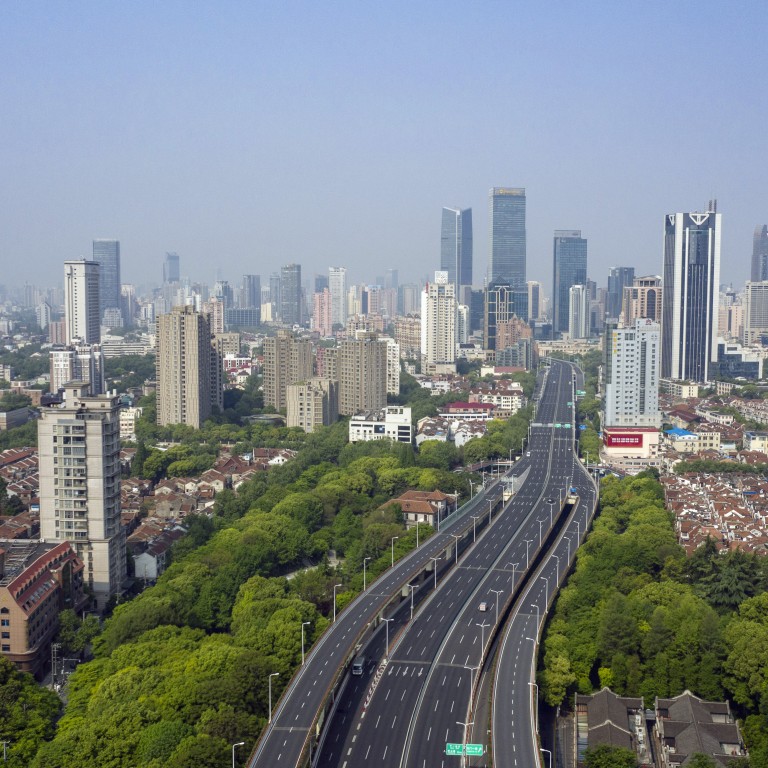
China expected to skip global Covid-19 summit co-hosted by Joe Biden
- Analysts say they believe Beijing will not take part in the event for fear its policies will be attacked in the wake of the Shanghai outbreak
- China’s approach is at odds with many countries, which have started to relax controls despite the threat from the Omicron variant
The White House announced on Monday that President Joe Biden will co-chair the virtual event on May 12 trying to put an end to the pandemic crisis and prepare for future health threats.
Indonesia, the current G20 president, G7 president Germany, African Union chair Senegal and Belize, the current chair of the Caricom Caribbean grouping will co-host the event.
Beijing has so far refused to clarify if it would attend the virtual gathering, which was originally scheduled in March.
Chinese Foreign Ministry spokesperson Wang Wenbin said on Tuesday that Beijing was aware of the event and “China welcomes all efforts conducive to promoting international solidarity and science-based response to Covid-19”.
Although coronavirus death rates are plummeting globally, “the emergence and spread of new variants, like Omicron, have reinforced the need for a strategy aimed at controlling Covid-19 worldwide,” said a White House statement. It also stressed the need to “prepare now to build, sustain, and finance the global capacity” for future health crises.
Backlash in wake of Chinese student’s expulsion after parents hid travel history
Shi Yinhong, an expert on US affairs at Renmin University in Beijing, said China’s participation was “possible, but not likely up to now” because it was afraid of being singled out over its controversial “dynamic zero-Covid” policy.
According to an estimate by Nomura Holdings last week, a total of 373 million people in 45 cities across China have come under some form of lockdown due to the spread of the highly contagious Omicron variant.
“For China, its consideration surrounding the event will be centred largely on whether it would fall victim again to international scrutiny of its drastic measures, especially after the intense global media coverage of chaos in Shanghai,” Shi said.
“Although calls for an international inquiry into the Covid-19 origins have ebbed in recent months, criticism of China’s zero-tolerance is intensifying.”
Beijing skipped a similar summit hosted by Biden in September, which was seen from Chinese perspective as another attempt by Washington to rally support and build global networks targeting China.
“It is clear that even if China agrees to participate, it may not offer much help in reining in the declining US-China ties as both sides seem determined to indulge in a war of words,” Shi said.
Illustrating the severity of the situation in Shanghai, US ambassador to China Nicholas Burns said in a tweet on Tuesday that “There are many vital challenges in the US-China relationship. I believe our highest priority, however, must be the 40,000 Americans living in Shanghai’s Consular District.”
When the US State Department ordered the evacuation of non-emergency US government workers from Shanghai early this month, Beijing was furious and made “solemn representations” with Washington.
George Magnus, a research associate at Oxford University’s China Centre, said Beijing was unlikely to get involved in the pandemic summit.
“I think it’s clear both that China is disinclined to follow or join what it regards as a US-sponsored event, and also that the domestic situation with regard to Omicron has torpedoed China’s pre-existing credibility for Covid management.
“So, you have a mixture of resistance to the US and embarrassment about being the first in and last out of Covid ‘normality’,” he said.
Shanghai’s daily new Covid-19 cases decline as standstill order ends
Pang Zhongying, a professor of international relations at the Ocean University of China in Qingdao, also said it was “basically impossible” for Chinese leaders to support US-led initiatives.
“Clearly two worlds exist: one that’s China-organised and the other, US-organised,” he said. “Two platforms and two kinds of governance.”
During a pre-recorded speech at the United Nations General Assembly on the eve of Biden’s first Covid-19 summit, China’s President Xi Jinping sought to challenge the US leader’s efforts to frame the US-China rivalry as a battle between democracies and authoritarianism.
Much of the world has decided to live with the virus, opting to lift many restrictions to improve the economy and mental health of their populations. But Pang said China had committed itself to a long-lasting battle with Covid-19, which could only end years later.
“If Shanghai – the biggest city – can do this, then all cities in China can do the same,” he said. “This means that all 1.4 billion people in China can be locked down and taken to be tested.
“Shanghai citizens complied with those measures; the people of China complied with them. This has created a Chinese world and a non-Chinese world. In this context, it is basically impossible for China to take part in the summit.”
Pang also said China and the US were “competing with each other over Covid governance”.
In September, Xi told the United Nations that China would donate 100 million vaccine doses to low-income countries in 2021 and provide US$100 million to Covax Facility, the international body responsible for ensuring equal access to vaccines.
Foreign Minister Wang Yi has said promoting global vaccination and Covid-19 drugs through Xi’s Global Development Initiative will be a diplomatic priority in 2022.
Additional reporting by Jack Lau



